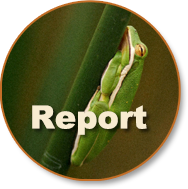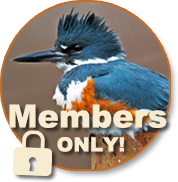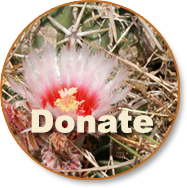FAQ
What do you want to know about our Chapter, and about joining us?
Who can join?
How do I join?
Who can I talk to if I have questions?
How much does it cost?
Who sponsors this organization?
What is required of a Certified Texas Master Naturalist?
What does Certification mean?
What is the initial TMN training like?
What should I bring to training sessions?
What kinds of volunteer activities can I do as a Texas Master Naturalist?
How will I get my advanced training?
How will I get credit for the work I do?
How do Mid-Coast Chapter members communicate?
What if I don’t have a computer?
Who can join?
The Mid-Coast Chapter, Texas Master Naturalist, Inc. is a 501(c)3 nonprofit corporation. Our programs are open to all qualifying individuals without regard to socioeconomic status, race, color, age, sex, religion, disability, or national origin. Applications for training and subsequent Chapter membership are limited to 15 per class to ensure the highest quality training and are accepted in this order:
(1) Mid-Coast area applicants deferred from the previous year’s training
(2) Former members needing to retake training
(3) Residents of the counties that make up the Mid-Coast Chapter area: Matagorda, Jackson, Victoria, Calhoun, Refugio, Aransas, Goliad, and San Patricio
(4) Other applicants deferred from the previous year’s training
(5) Applicants from adjacent counties with no TMN chapter
(6) Applicants from nearby counties that have a TMN chapter
(7) Applicants from other areas of Texas
How do I join?
You can apply online, using your computer, tablet, or smartphone, and the Membership Director will contact you directly. Instructions for submitting the application fee are on the application.
Who can I talk to if I have questions?
How much does it cost?
The initial membership fee, which helps fund your training and includes your dues for the first year, is currently $150 per person. This fee includes the Mid-Coast Chapter training manual, books, supplies, and boat transportation to training sites that require it. Fees are reevaluated yearly to address training costs. In subsequent years, dues are $15 per person or $25 per couple, payable in January.
Who sponsors this organization?
Texas A&M AgriLife Extension Service and Texas Parks & Wildlife Department
What is required of a Certified Texas Master Naturalist?
Each Texas Master Naturalist must complete 40 hours of initial, in-depth training in wildlife and natural resource management, customized to focus on their local ecosystems. In return, they provide at least 40 hours of service per year in the form of community education, demonstration projects, or habitat maintenance, improvement, and restoration. They pursue a minimum of 8 hours per year of advanced training in their own special-interest areas that complement the initial training.
What does Certification mean?
It means you have completed the requirements for becoming a Texas Master Naturalist. Certification is maintained by completing your annual commitment to 40 hours of volunteer time and 8 hours of advanced training.
What is the initial Mid-Coast TMN training like?
Check out the New-Member Training schedule. Each of the sessions includes a classroom portion and a field portion. The field portion is a vital part of the training and cannot be omitted. No one else can take the training for the trainee.
Training may require walking up to 2 miles, wading through wetland areas, bending and kneeling, and getting in and out of small boats. Weather conditions will vary from cold to hot and dry to wet. If you have health issues that may preclude these activities, contact the Membership Director to ask questions and relate information that will apply to your specific condition. It will be your responsibility to make special arrangements needed to complete difficult portions of the training and get them approved by the Education & Training committee.
What should I bring to training sessions?
Classroom portion – Members-in-training are inundated with information. Bring:
- The TMN binder you were given at the first session
- Equipment for taking notes
- Food & beverages – Sessions last all day and are often far out of any town. Bring:
Lunch
Sufficient water and sodas or juice to stay well hydrated all day
Fieldtrip portion – use your judgment to vary this list based on specific location and time of year
- Sunscreen and mosquito repellent
- Hat, long-sleeved shirt, long pants, sturdy walking shoes (pants and shoes may get wet)
- Field notebook provided at Orientation
Nice to have – If you can manage without difficulty
- Binoculars
- Your favorite field guide
- Camera
What kinds of volunteer activities can I do as a Texas Master Naturalist?
Volunteer efforts provide educational or environmental benefits to our local area. Volunteers at The Texas Zoo present the zoo’s small animals to zoo visitors one-on-one and answer visitor questions. Volunteers have planted and tend native-plant butterfly and hummingbird gardens in several locations in our area. At Mad Island Marsh Preserve, Aransas National Wildlife Refuge, and aboard the Sea Grant Research Vessel Karma, volunteers make presentations to the public, answer questions and facilitate discussions, or assist presenters with setup and cleanup. Volunteers maintain several of the bird sanctuaries in the Central Coast Region of The Great Texas Coastal Birding Trail. Texas State Aquarium volunteers present to the public or work in the background feeding and cleaning exhibits. Turtle Patrol volunteers ride the beaches of Matagorda Peninsula, Matagorda Island, and Padre Island National Seashore searching for signs of endangered Kemp’s ridley sea turtles. These are only a few of the possible service activities. Check out the Guidelines for Volunteer Work.
How will I get my advanced training?
You can get information about any approved free or paid training being offered: on this site, by e-mail, or at meetings. If you know of other available training that will educate you in local ecologies, flora, fauna, ecology management, or natural history, check Training Criteria to determine whether it could meet the requirements. If so, contact the Chapter Education & Training Director for approval on a case-by-case basis.
How will I get credit for the work I do?
Members report their volunteer service online using computer, tablet, or smartphone. For more information and help with computer issues—contact the Chapter hours-keeper.
How do Mid-Coast Chapter members communicate?
Since our Chapter area covers such a large area, members are kept up to date on upcoming training and volunteer activities, Chapter news, and meetings via email and this Chapter website. See the Calendar, Volunteer Opportunities, and Training Opportunities to get an idea what goes on during a typical year. See Postings to read articles from members about events they have enjoyed. Members also enjoy sharing ideas, experiences, relevant topics, and announcements on our Chapter Facebook page.
What if I don’t have a computer?
Do you have access to a tablet or smartphone? You can report and use the website on those devices. Communication is needed to be sure you don’t miss out on activities and can complete your certification requirements. You will be responsible for making any special arrangements needed to ensure you have email and Internet access, but we can help.
Like to join us?
Apply for membership online. The Membership Director will contact you directly.
If your question was not answered, please use the Contact Us! link.




